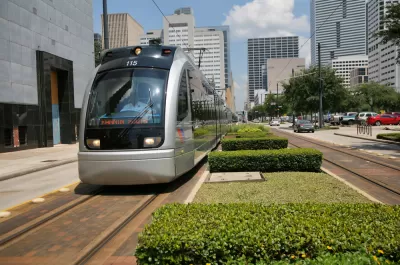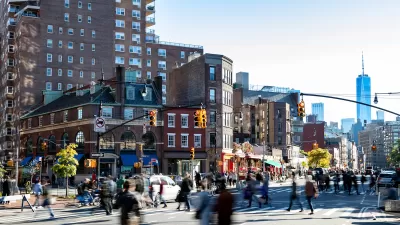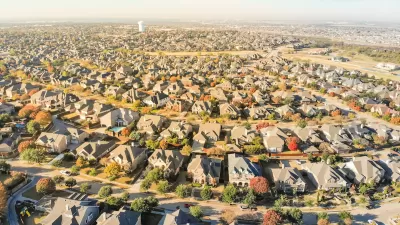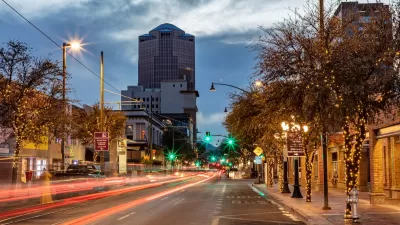After a three quarters of a century of building to accommodate cars and not people, it's going to take big changes to get the transit system the United States needs, argues a Next City editorial.

As people around the country protest highway expansions, it seems to Adie Tomer and Jeffery Gutman (authors of a recent op-ed in Next City) that the time when, "Transportation engineers and planners designed transportation networks with seemingly one goal in mind: to move vehicles as quickly as possible," has come to an end. As people and planners come to value walkability and access, transit will have to change. "These trends signal a transition away from an outdated model focused on moving vehicles to a new approach focused on getting people where they want to go," the Next City piece argues.
But, wishing doesn't make it so.
Tomer and Gutman caution that it will take changes not just to our buses or trains, but to the systems that we use to build, evaluate and maintain our transportation infrastructure. " Maximizing access will also require new frameworks to govern the built environment." Upsetting the current state of things means a lot of educating, negotiating and upsetting those that are invested in the old ways of doing things. "Formal guidebooks must be revised to reflect updated thinking. Political battles must be waged with actors looking to maintain the status quo, including developers who’ve already invested in land on the urban fringe." Still, the authors say, the need is real and many Americans have already demonstrated an appetite for this change, the work can be done, but it won't be easy.
FULL STORY: Why It Will Take More Than Light Rail to Fix U.S. Transit

Planetizen Federal Action Tracker
A weekly monitor of how Trump’s orders and actions are impacting planners and planning in America.

San Francisco's School District Spent $105M To Build Affordable Housing for Teachers — And That's Just the Beginning
SFUSD joins a growing list of school districts using their land holdings to address housing affordability challenges faced by their own employees.

The Tiny, Adorable $7,000 Car Turning Japan Onto EVs
The single seat Mibot charges from a regular plug as quickly as an iPad, and is about half the price of an average EV.

With Protected Lanes, 460% More People Commute by Bike
For those needing more ammo, more data proving what we already knew is here.

In More Metros Than You’d Think, Suburbs are Now More Expensive Than the City
If you're moving to the burbs to save on square footage, data shows you should think again.

The States Losing Rural Delivery Rooms at an Alarming Pace
In some states, as few as 9% of rural hospitals still deliver babies. As a result, rising pre-term births, no adequate pre-term care and "harrowing" close calls are a growing reality.
Urban Design for Planners 1: Software Tools
This six-course series explores essential urban design concepts using open source software and equips planners with the tools they need to participate fully in the urban design process.
Planning for Universal Design
Learn the tools for implementing Universal Design in planning regulations.
Smith Gee Studio
City of Charlotte
City of Camden Redevelopment Agency
City of Astoria
Transportation Research & Education Center (TREC) at Portland State University
US High Speed Rail Association
City of Camden Redevelopment Agency
Municipality of Princeton (NJ)





























